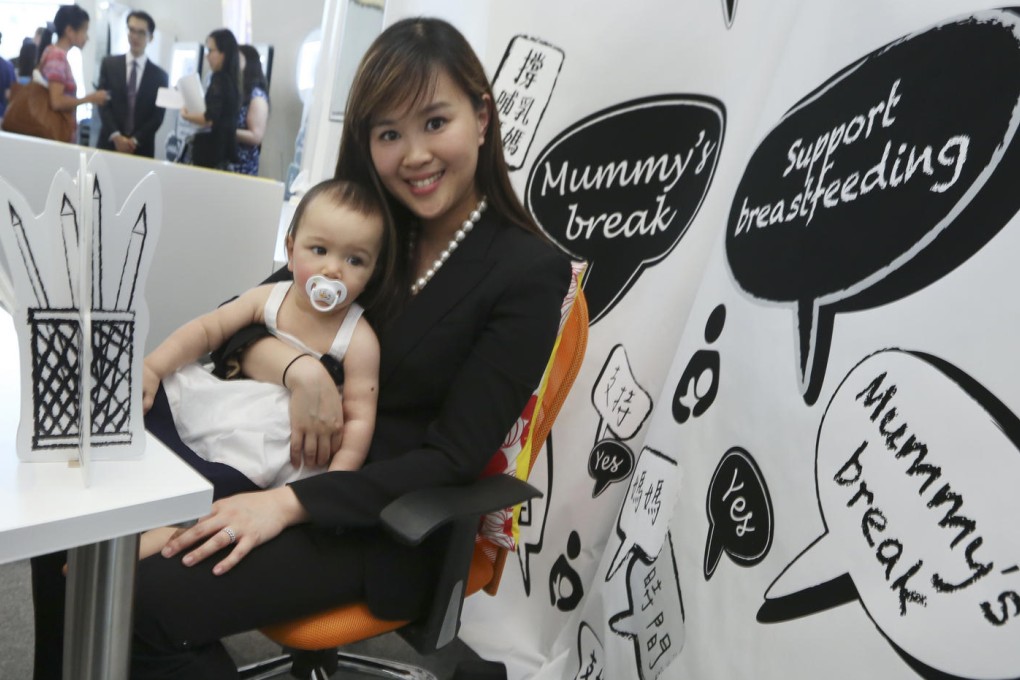Hong Kong lags behind in support for breastfeeding mothers
Barely 2 per cent of Hong Kong mothers exclusively breastfeed their baby for six months, as the World Health Organisation recommends

Mother-of-three Christine Wong had her first child in 2004 and her last in 2013, and says nothing much has changed in terms of support for breastfeeding mothers in Hong Kong.
Wong, who is still breastfeeding her 2½-year-old, says when her youngest was born via caesarean section at Union Hospital, she was refused both skin-to-skin contact immediately after birth and rooming in with the newborn (since she didn't have a private room). These are two of a number of measures that promote successful breastfeeding - the World Health Organisation recommends giving breast milk exclusively for the first six months of a baby's life.
"After delivery, I walked up and down the hospital corridor every two hours to feed my baby and spent the rest of my time in the room squeezing colostrum into a syringe," Wong says.
She also recounts two incidents where she was breastfeeding in a mall and was told she wasn't allowed to - even though she was using a nursing cover.
"Overall, in Hong Kong, it's very hard to be a breastfeeding mother. Things are slowly getting there, but it's taking a very long time," Wong laments.
I've heard of women in tears, pumping in the bathroom. I'm glad I didn't have to go through that
Breastfeeding support should start right in the hospital when the baby is born, and continue whether the mother is at home, at work or in public. The lack of support in the city is a key reason why breastfeeding rates are so low among Hong Kong mothers.